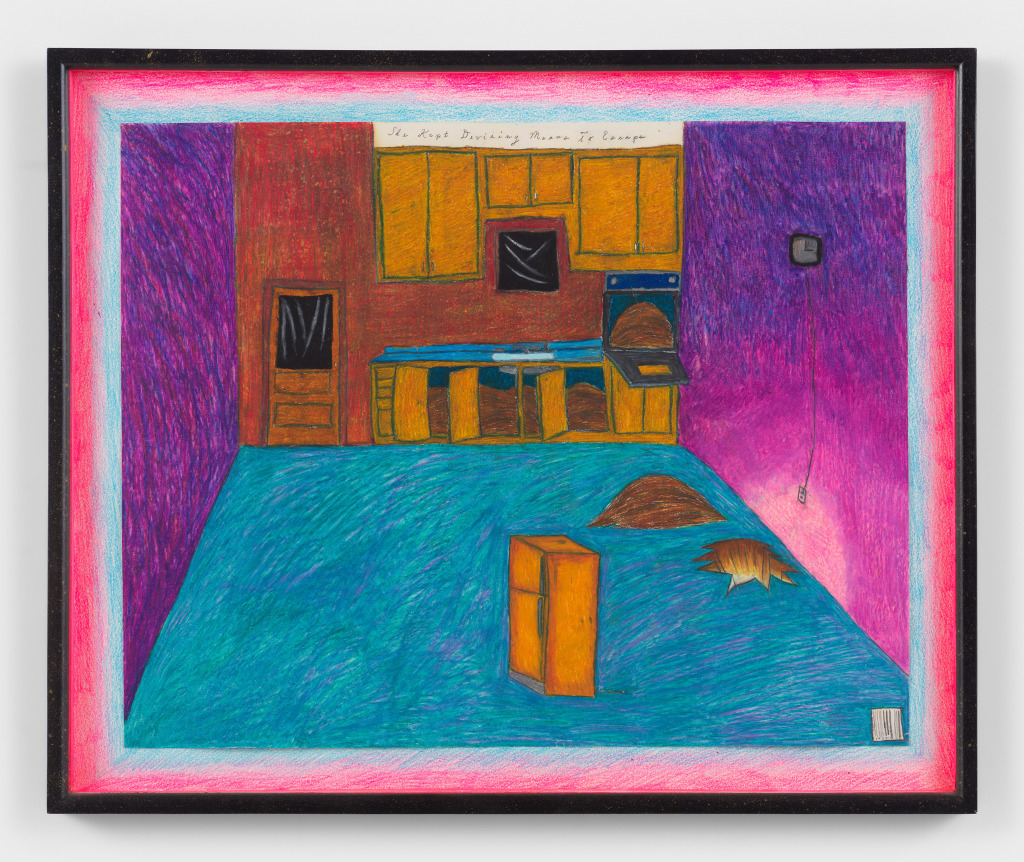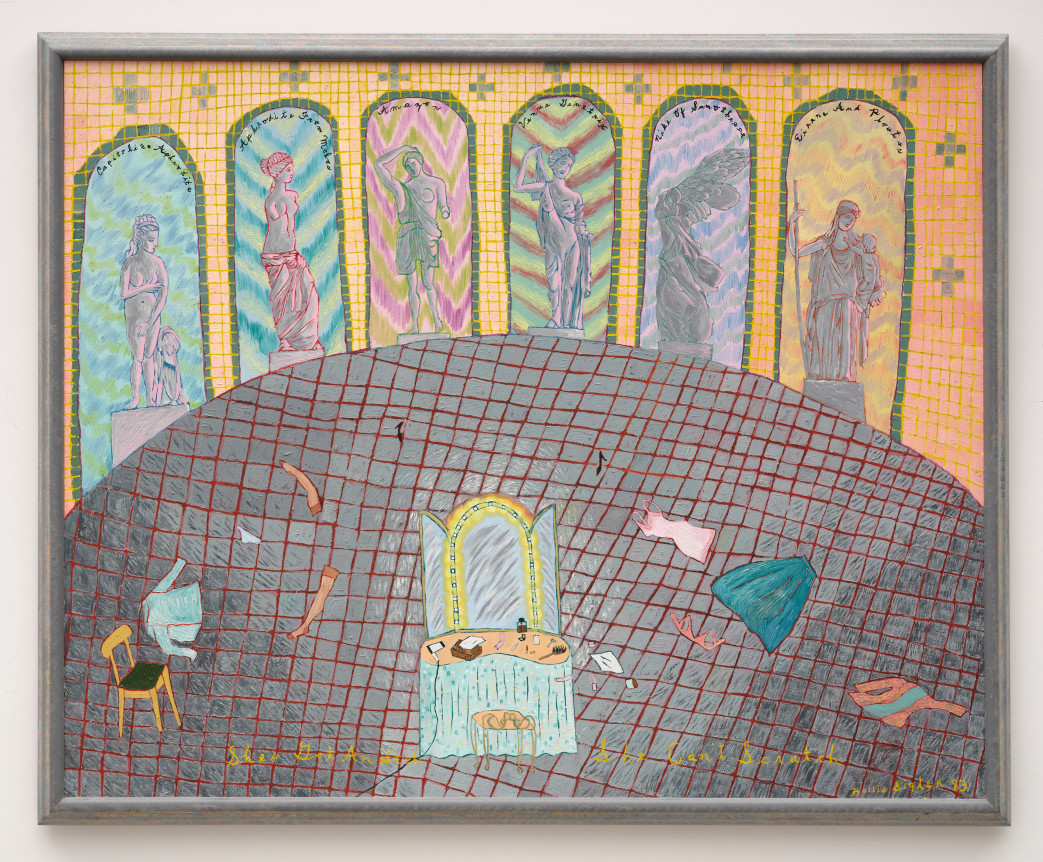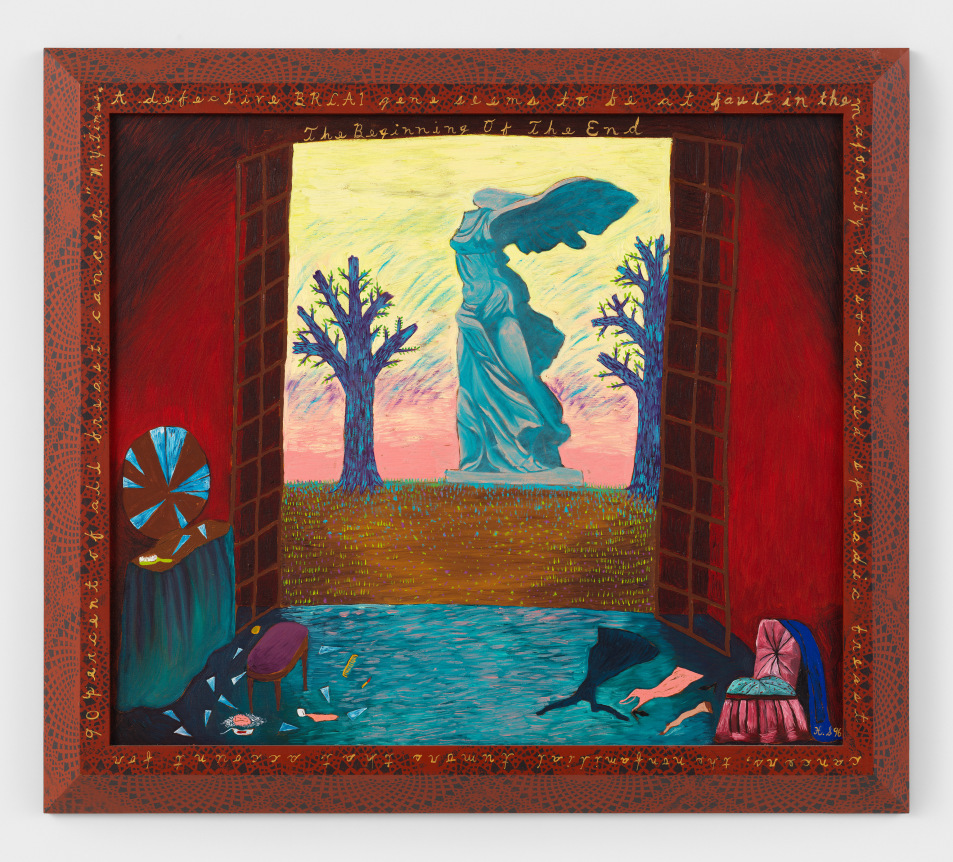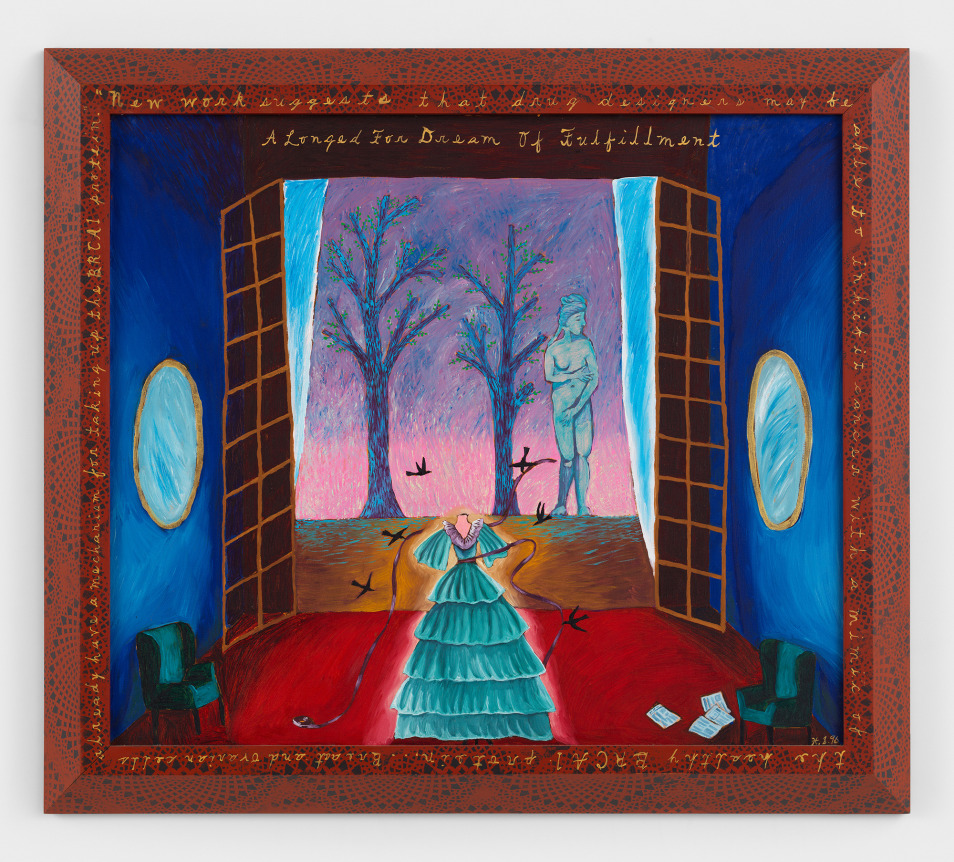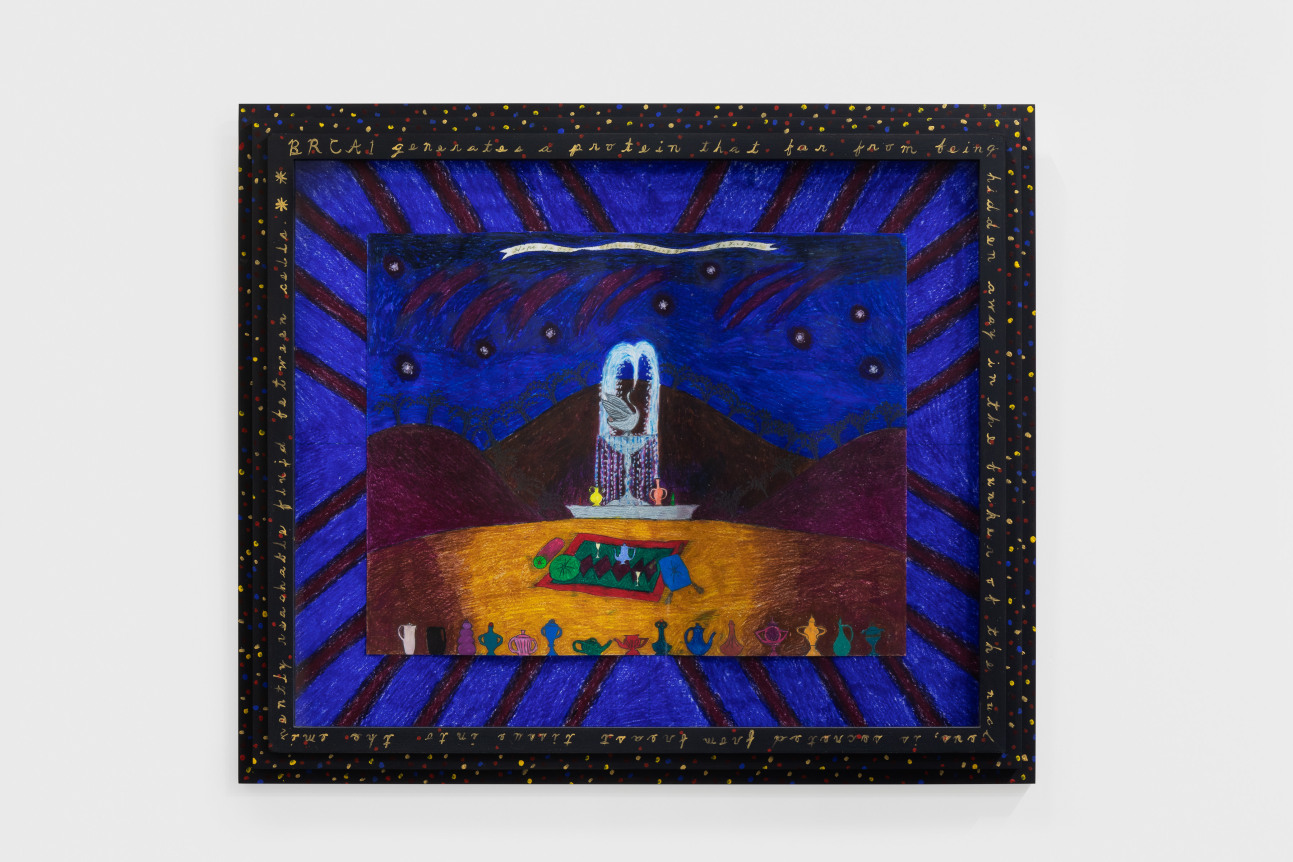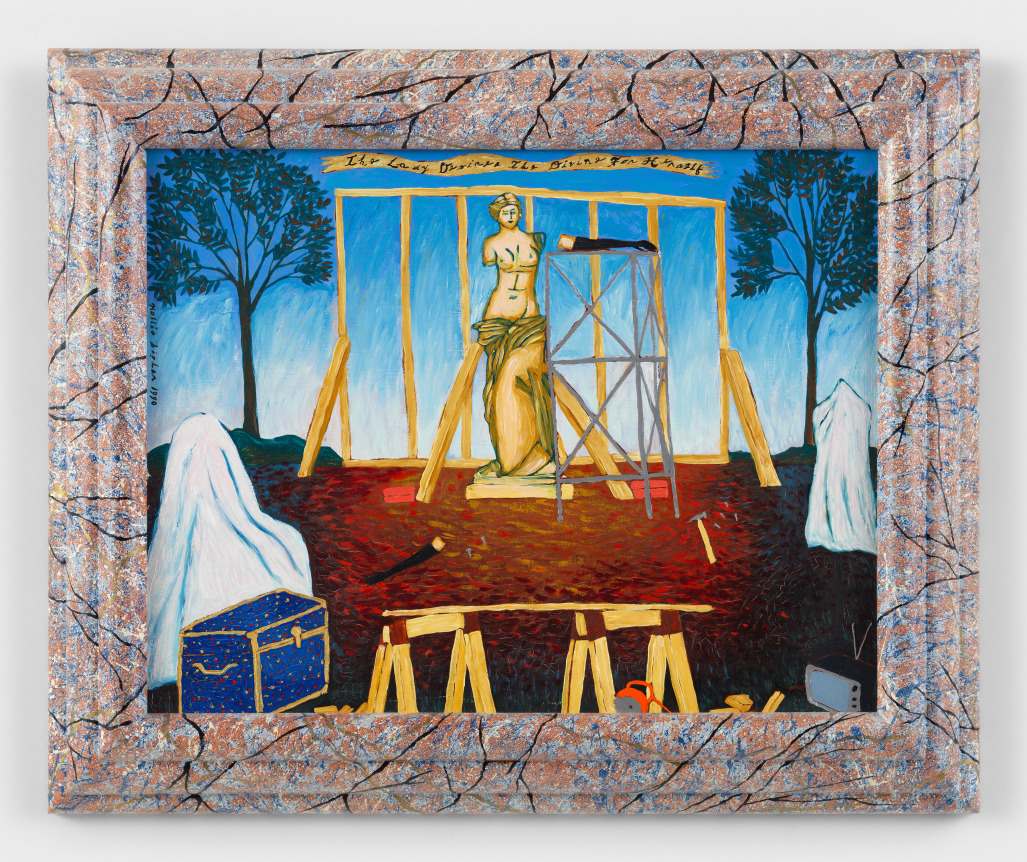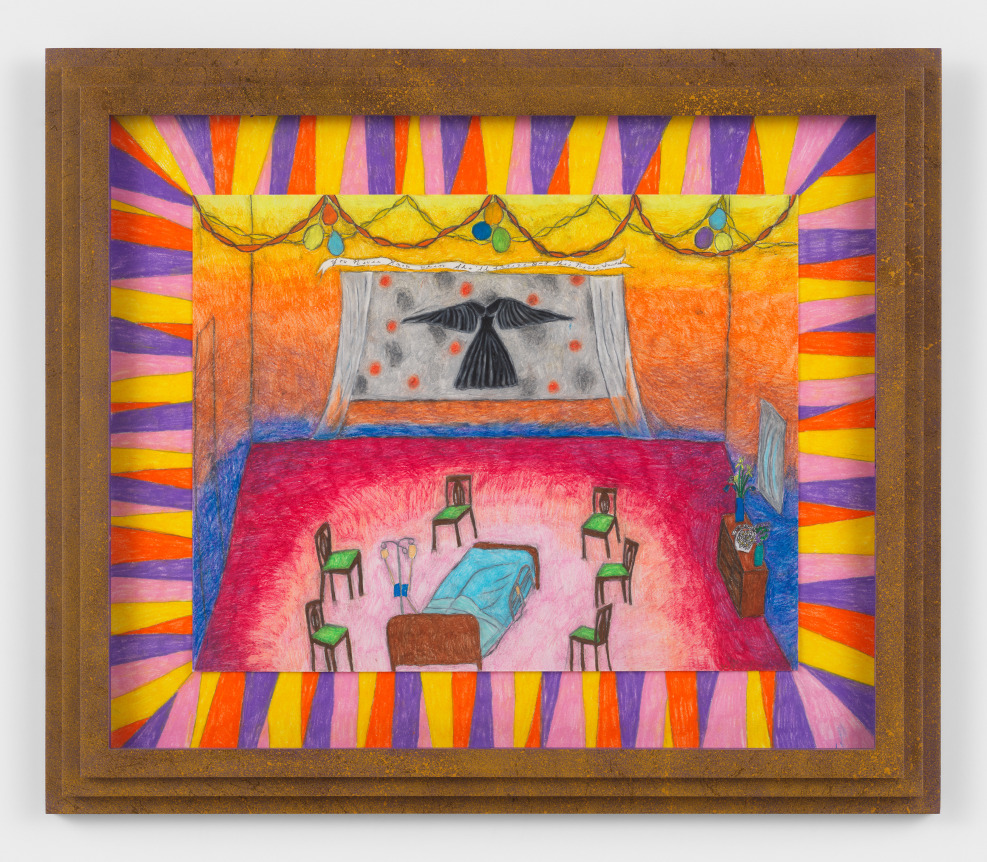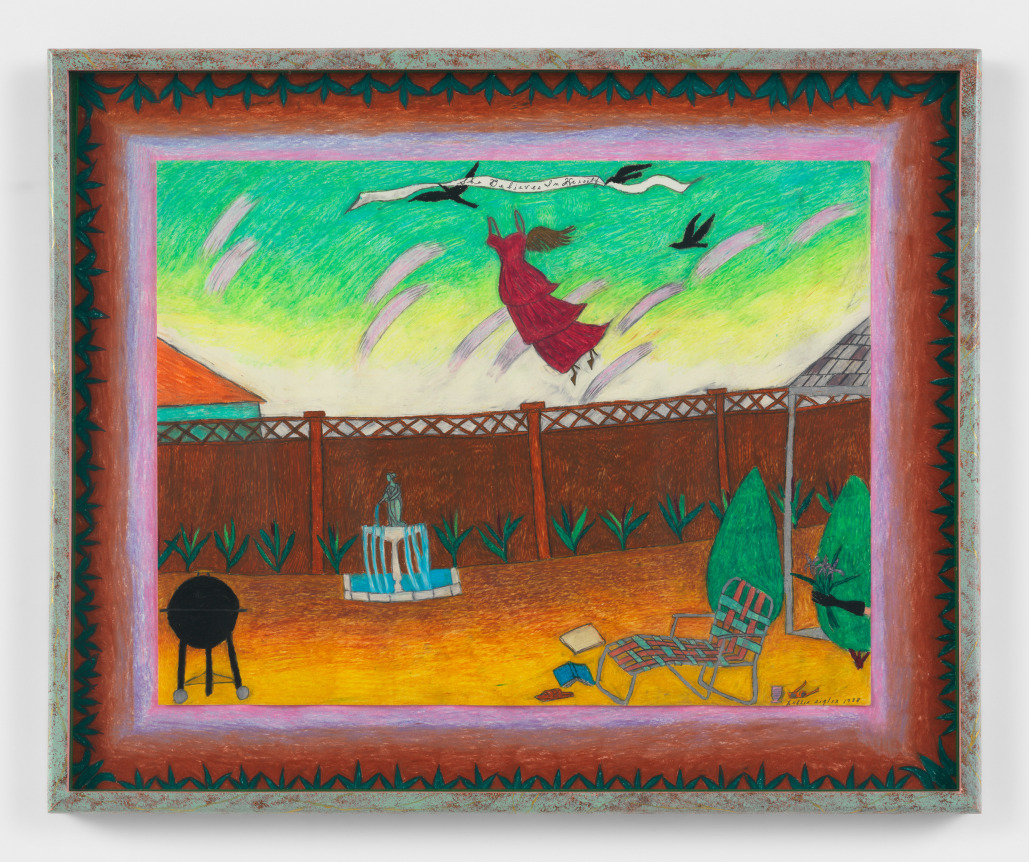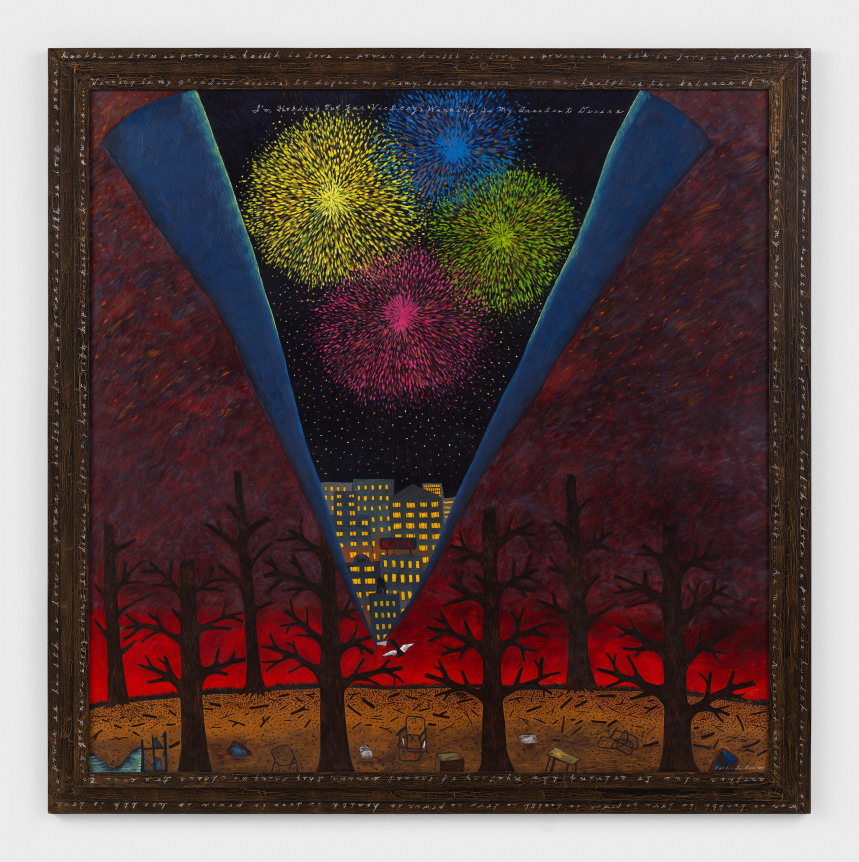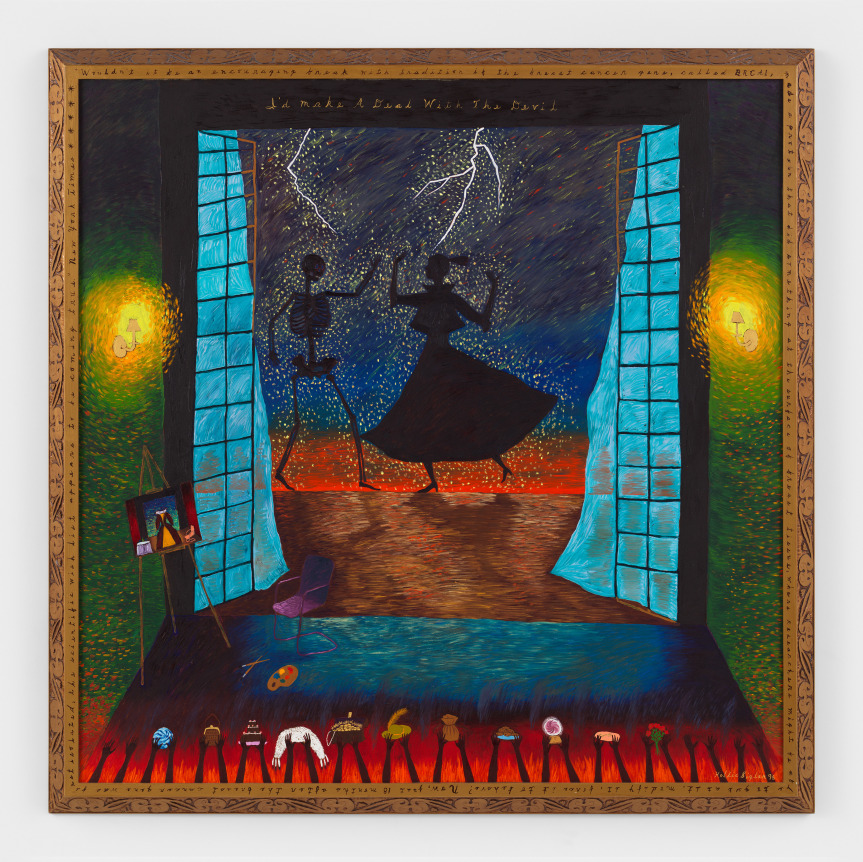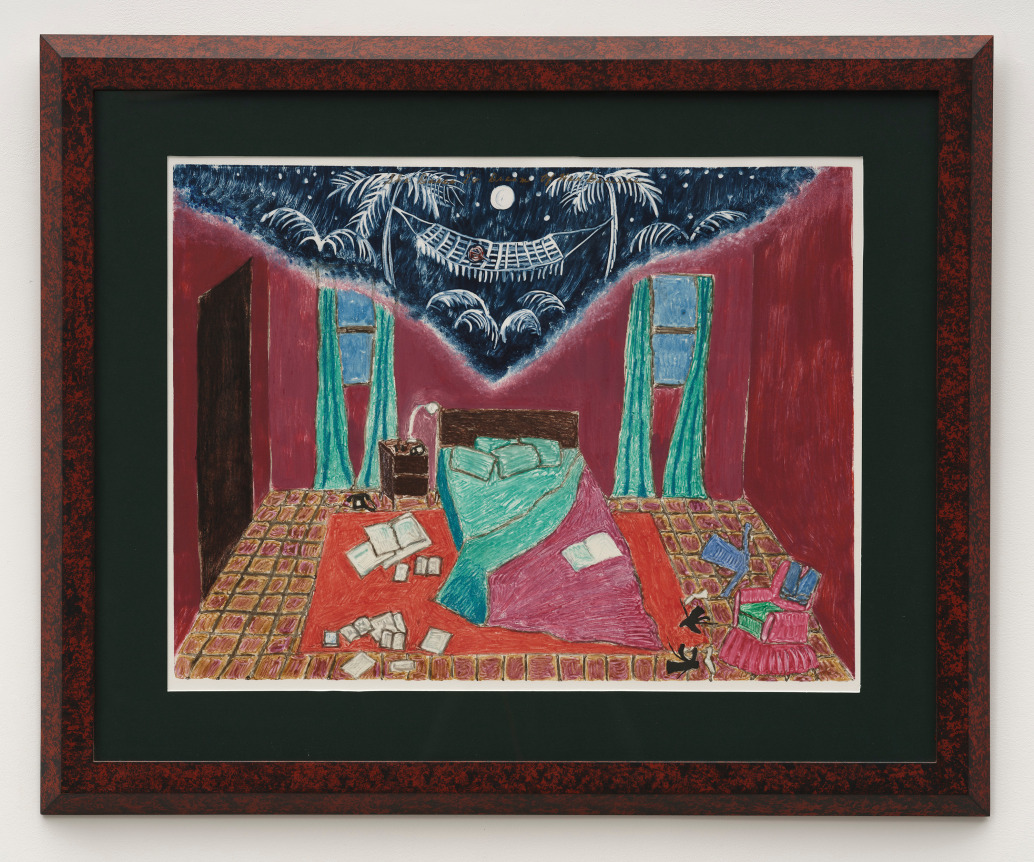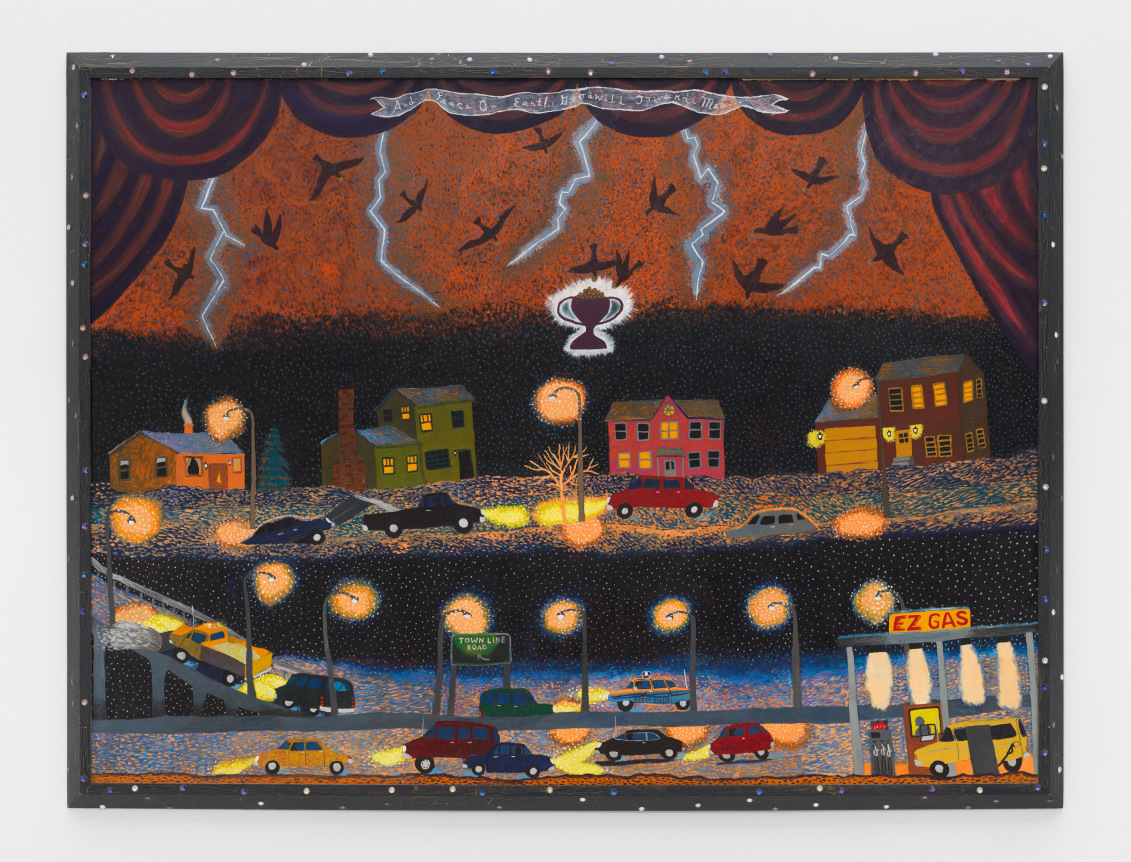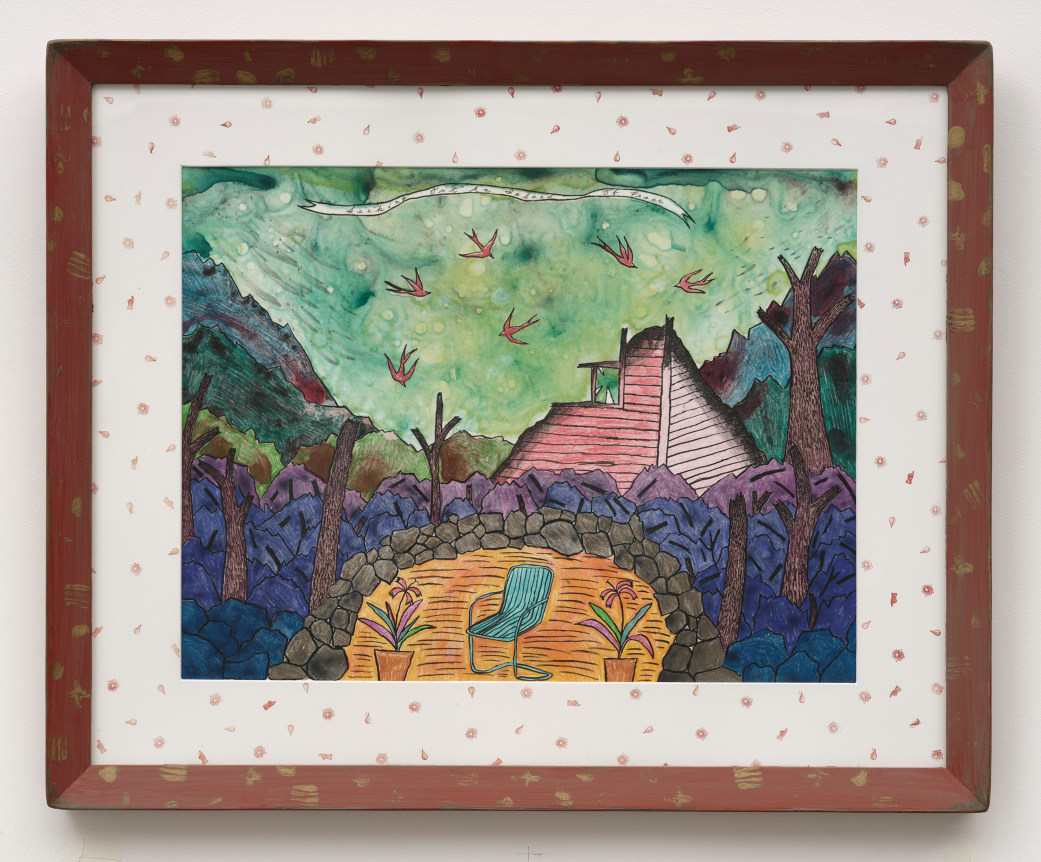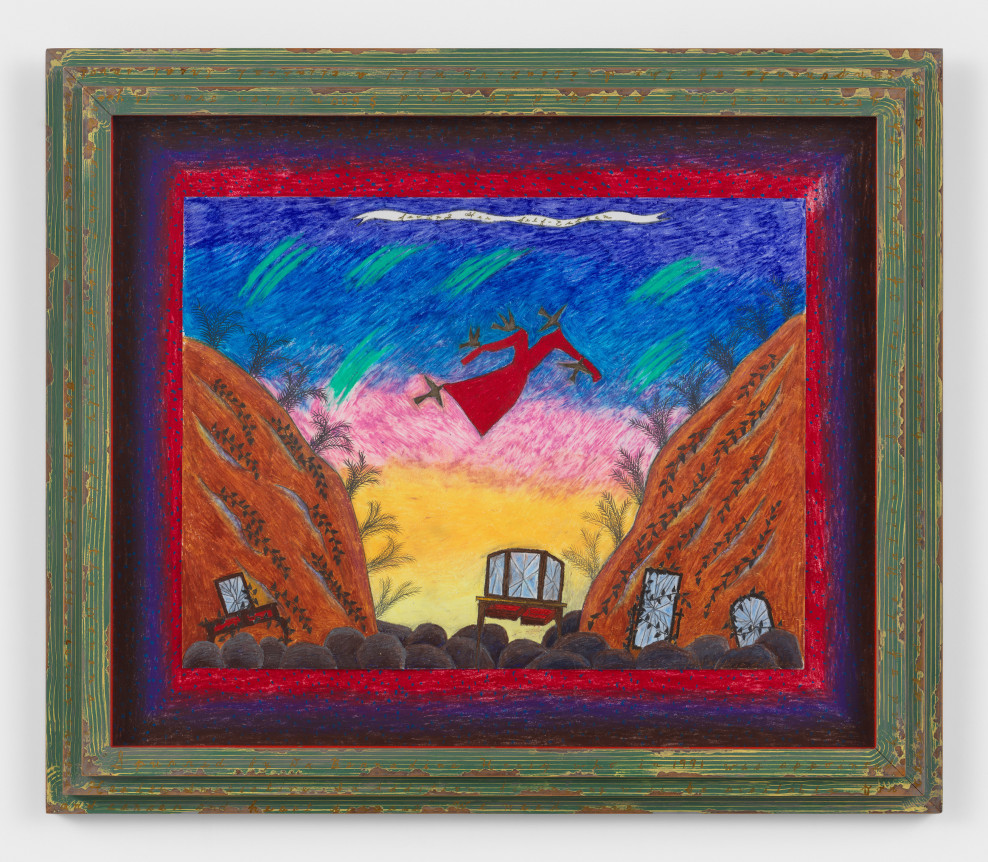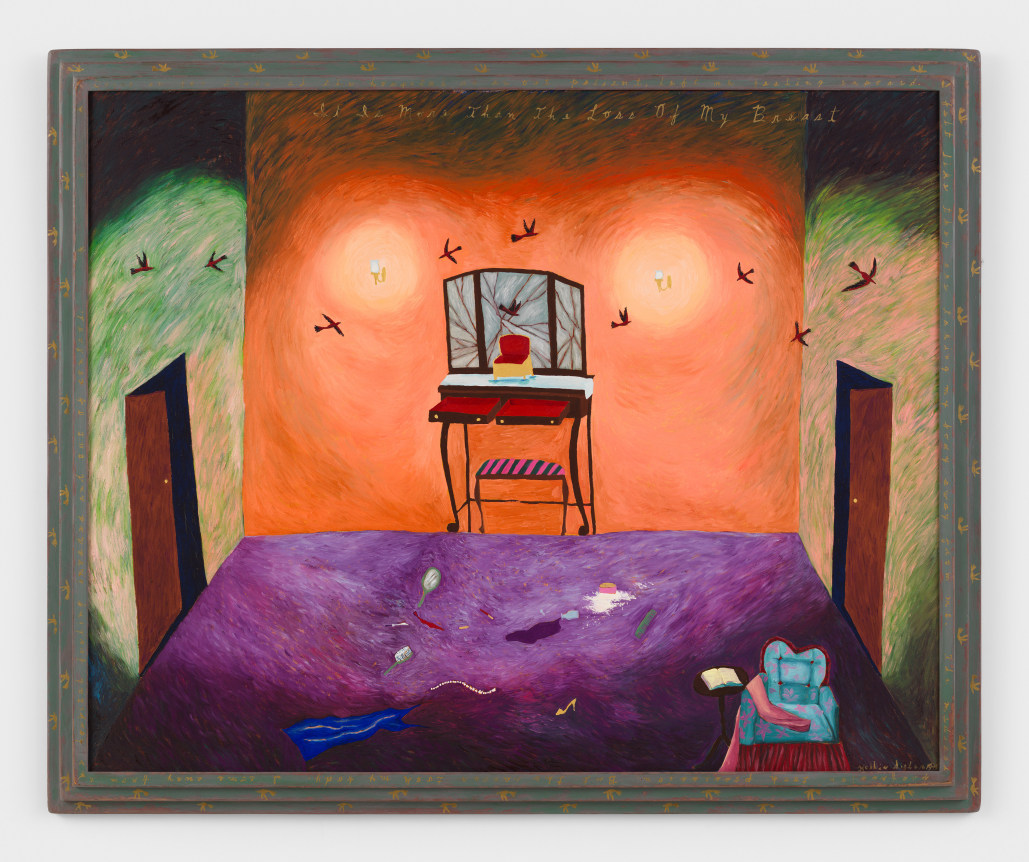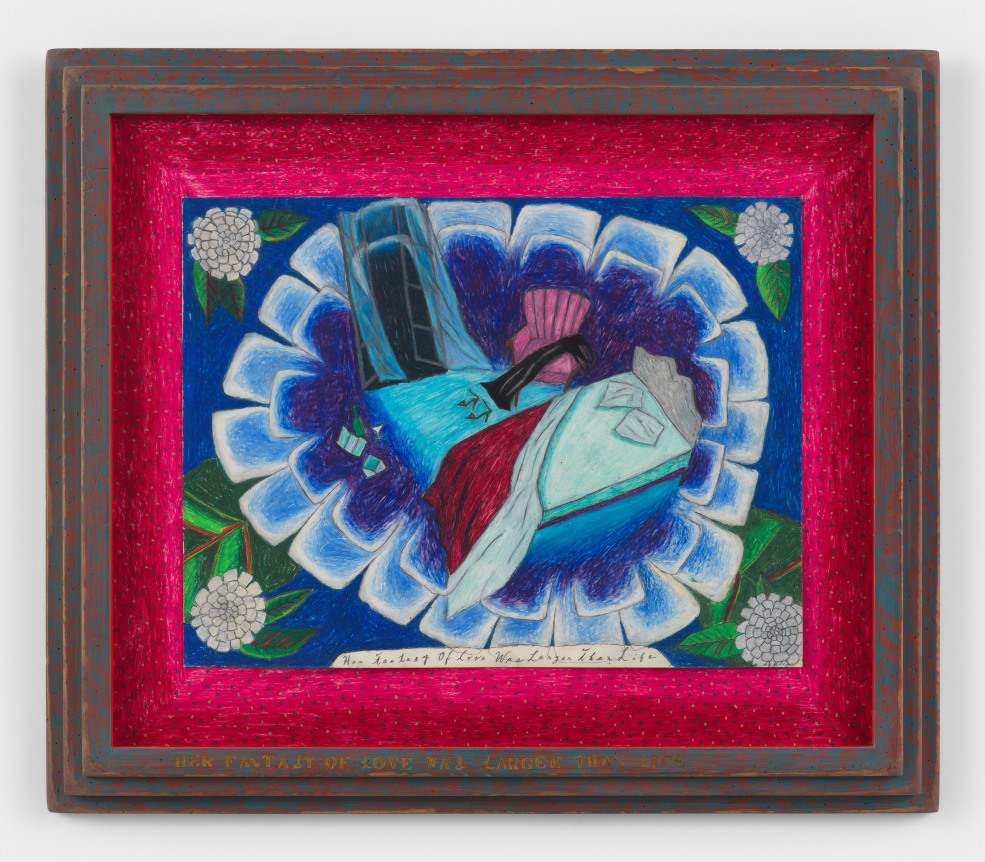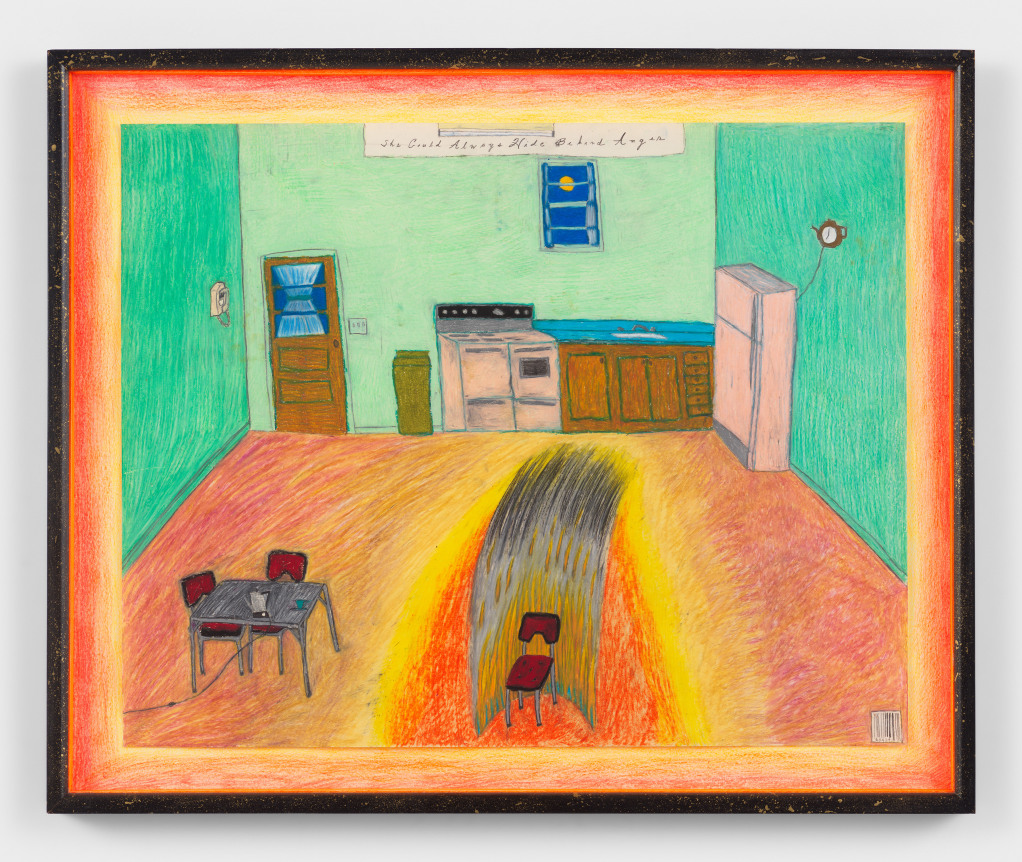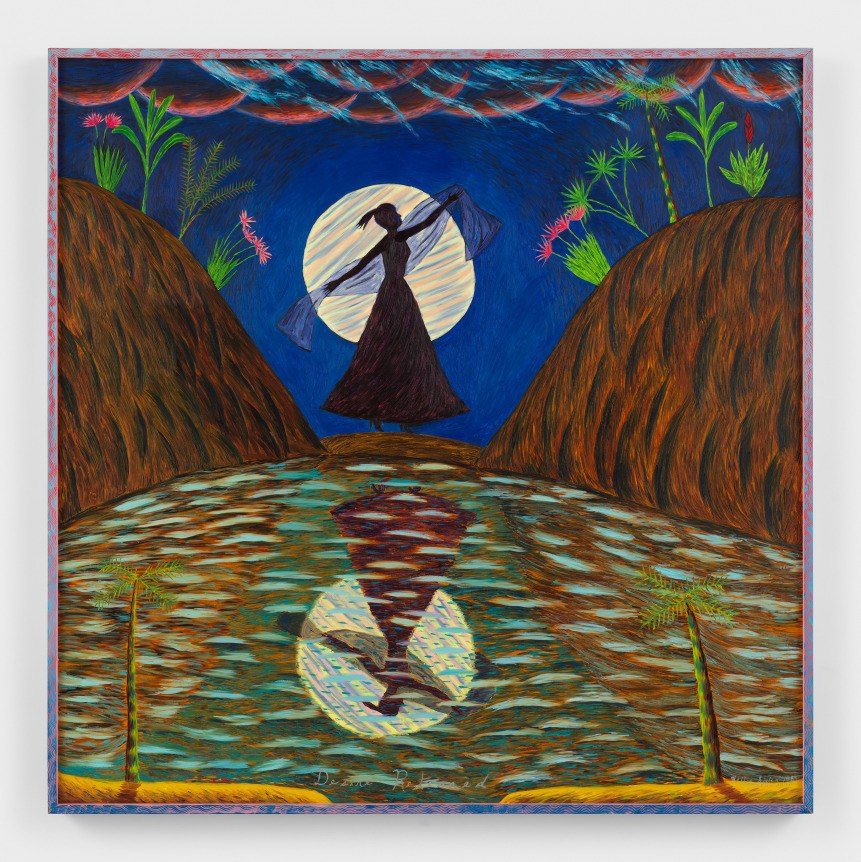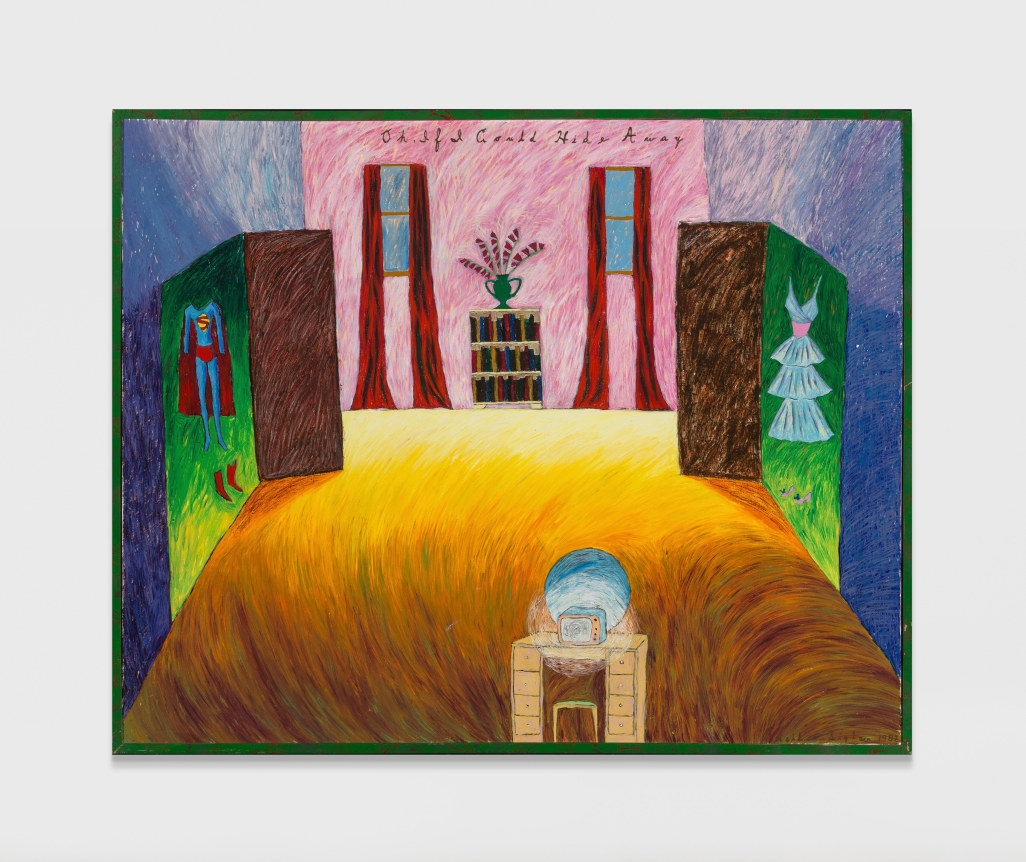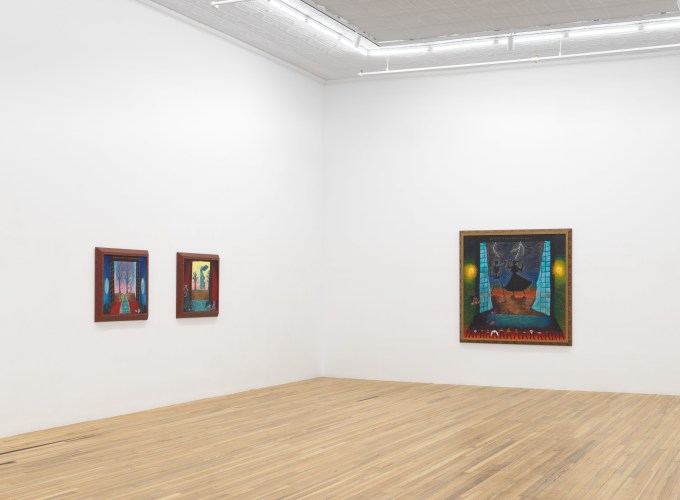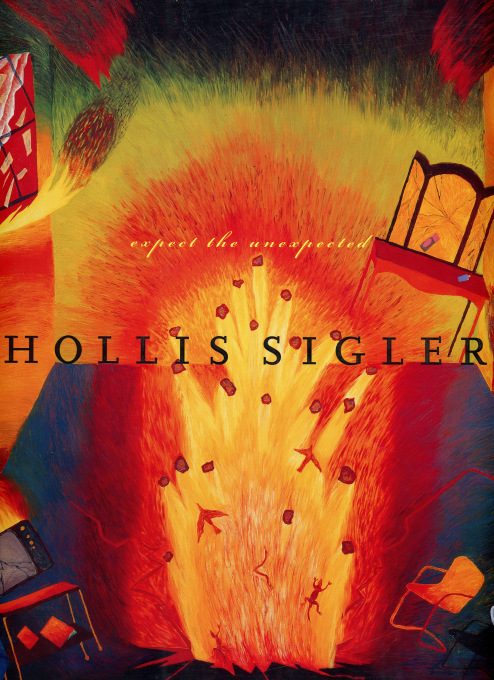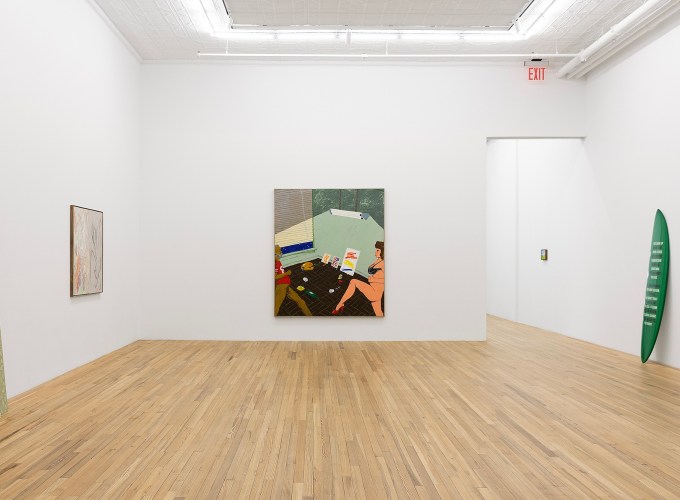
Hollis Sigler was an educator, activist, and pioneering feminist artist, who lived and worked in Chicago.
Hollis Sigler rose to prominence in the 1970s as part of Chicago's vibrant art scene, co-founding Artemesia Gallery, a female cooperative gallery in the city. By the late 1970s, Sigler had abandoned photorealism in favor of a naive style of representation, influenced by the unrestrained drawing of her youth, and driven by a desire to shift how narrative was communicated in art. Centered on the experiences of women, Sigler's works from the early 1980s portrayed domestic scenes set within skewed, nearly theatrical spaces. Figures were often depicted in shadow or absent entirely from Sigler's compositions, and in their place, opened dressers, strewn items of clothing, and traces of activity would suggest the aftermath of an event. This was often reinforced by the works' titles, which adorned the works and their intricate, handmade frames. Sigler viewed the removal of the figure as a way to generate visual tension and further explore more fleeting emotional states, such as passion, romance, desire, as well as anxiety, and fear.
Sigler's work would undergo another shift in 1985 after she was diagnosed with breast cancer, a disease that had also afflicted her mother and grandmother. While Sigler initially kept her diagnosis private, her works became increasingly charged with frenetic brushstrokes and agitated colors, as she connected her own fears of impermanence with the natural world, and impending ecological crisis. Tidal waves, earthquakes, and fires created scenes of disequilibrium and imbalance — a world that appeared to be in free fall.
After her cancer recurred in 1992, the subject of illness became an urgent fixture within Sigler's work, starting her series Breast Cancer Journal: Walking with the Ghosts of My Grandmothers that same year. Hoping that "the work would gain the power to destroy the silence surrounding the disease", the resulting works formed an intensely vulnerable chronicle of her experience with the illness. Despite her waning health, Sigler remained resolute, positioning her work not only as a personal catharsis but also as a way to demystify the disease.
In 2022, Andrew Kreps Gallery presented the first solo exhibition of Hollis Sigler's work in New York in over three decades. Sigler exhibited extensively during her lifetime, including the traveling exhibition Breast Cancer Journal, which originated at the Rockford College Art Gallery, 1993, traveled to National Museum of Women in the Arts, 1993, and MCA Chicago, 1994. In addition, her work was included in the 1981 Whitney Biennial, Whitney Museum of American Art, New York, and the 1985 Corcoran Biennial, as well as the 1982 exhibition Eight Artists: The Anxious Edge, Walker Art Center, Minneapolis. Additionally, Sigler exhibited with Gladstone Gallery, New York (1986 and 1981), Carl Hammer Gallery, Chicago (1998 and 1995), and Steven Scott Gallery, Baltimore (1998, 1996, 1995, 1993, and 1990). In 2009, the Rockford Art Museum, Illinois mounted a posthumous retrospective of Sigler's work, titled Expect the Unexpected, which traveled to the Chicago Cultural Center in 2010. Hollis Sigler’s works are held in the permanent collections of the Art Institute of Chicago, the Baltimore Museum of Art, the Contemporary Arts Center, Cincinnati, OH, the High Museum of Art, Atlanta, GA, the Honolulu Museum of Art, the Indianapolis Museum of Art, the National Gallery of Art, Washington, DC, Glenstone, Potomac, MD, the National Museum of Women in the Arts, Washington, DC, the Museum of Contemporary Art, Chicago, the Seattle Art Museum, among others.

